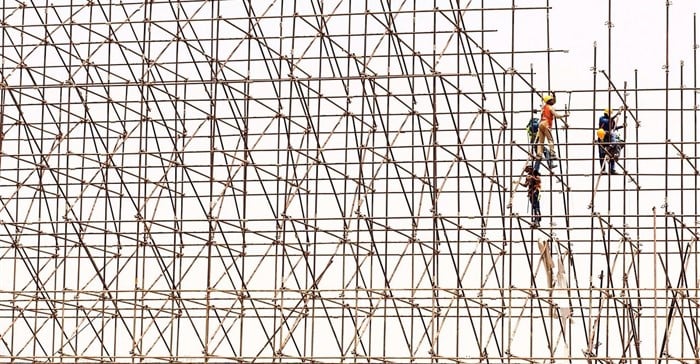
Top stories

Marketing & MediaBehind the campaign: Reframing fairness in ride-hailing: The inDrive success story
inDrive 3 hours





More news

















The Turner & Townsend International Construction Market Survey 2018 identifies growing competition for labour and resources as strong economic growth in key global markets unlocks greater construction activity. Fresh investment in infrastructure is creating significant opportunity for real estate development, and the growing disconnect between investor appetite and industry capacity to build is driving up cost inflation.
Forty-five percent of markets surveyed within the report are shown to be heating up, compared with 33% in 2017. Warming markets are typically characterised by a large number of projects that are pushing up prices.
New York City remains the most expensive location in which to build, with the average cost of construction in the city climbing 3.5% to $3,900 per square metre in 2018. New York is followed by San Francisco ($3,737 per square metre), Hong Kong ($3,704 per square metre), Zurich ($3,652 per square metre) and London ($3,618 per square metre).
On the African continent, of the cities surveyed, Johannesburg has experienced the highest construction cost inflation, rising by 6% in 2018 to an average cost of $1,079 per square metre. However, Kigali in Rwanda tops Jozi’s metric, with a per square metre cost of $1,082, increasing by 2% in 2018. In other African cities included in the survey, construction costs are currently $970 per square metre in Kampala, Uganda; $857 per square metre in Dar es Salaam, Tanzania; and $724 per square metre in Nairobi, Kenya.
Skills shortages have been a major force behind continuing cost escalation. The five top cities within the report have seen labour rates increase by 10% in the last year, with New York construction workers commanding an average cost of labour of $98.30 per hour. Overall, 58.7% of markets within the survey report a skills shortage, with only three markets – Houston, Muscat and São Paolo – reporting a surplus of labour.
The global trend towards higher construction costs has been offset only by Perth, Australia, and Muscat, Oman, where prices fell by 1%. Both cities have continued to see limited investment in new projects on the back of low commodity prices. However, Turner & Townsend’s 2018 International Construction Market Survey forecasts that all markets surveyed are expected to rise in 2018.
The survey analyses input costs – such as labour and materials – and charts the average construction cost per square metre for commercial and residential projects in 46 markets around the world. In recognition of the growing importance of Asian markets, the 2018 report includes Shanghai, Jakarta and Ho Chi Minh City for the first time.
Steve McGuckin, global head of client programmes at Turner & Townsend, says that fundamental changes were needed to the industry model to control project costs: “Global GDP growth of 3.8% is driving a resurgence in construction activity across international markets. While this uptick will inevitably push up costs, inflation is being exacerbated by skills shortages: put simply, we need to do more work with fewer workers.
“To meet this challenge, we need a fundamental shake up of the industry model to incentivise investment into new digital tools, modern manufacturing methods and automation to improve productivity and ensure long-term change. Projects need to be set up to deliver better performance from the construction supply chain and available workforce – rewarding innovation in methods and materials, which ensures better outcomes for the communities we build for.”